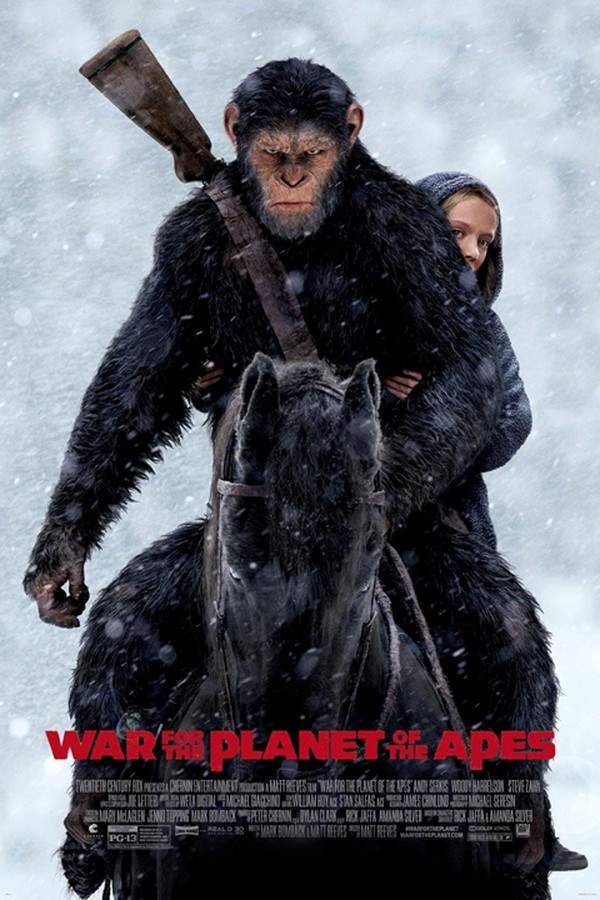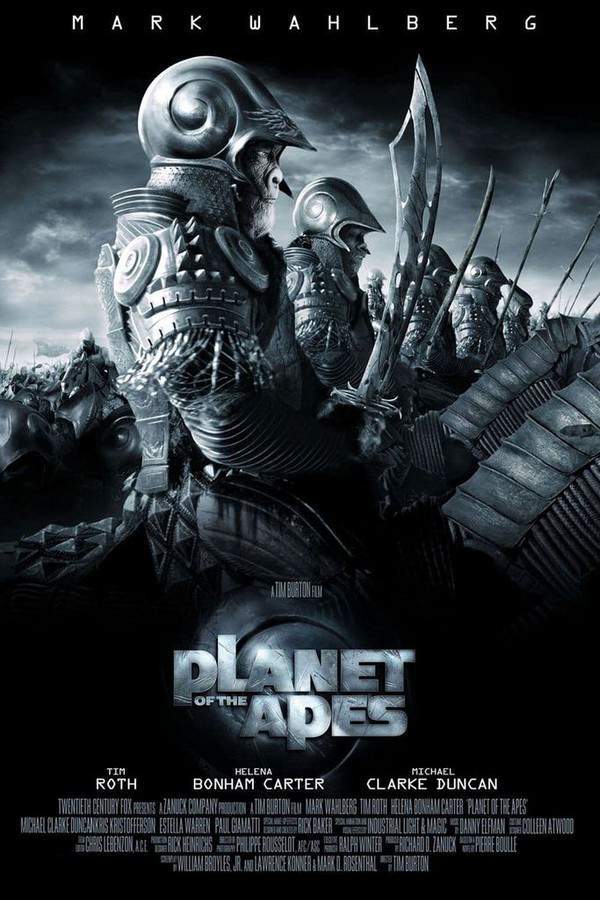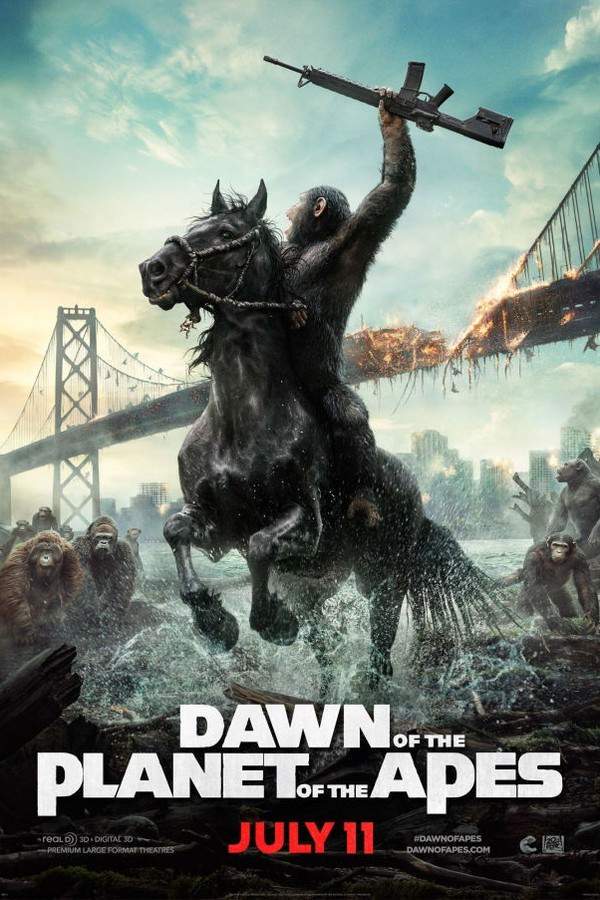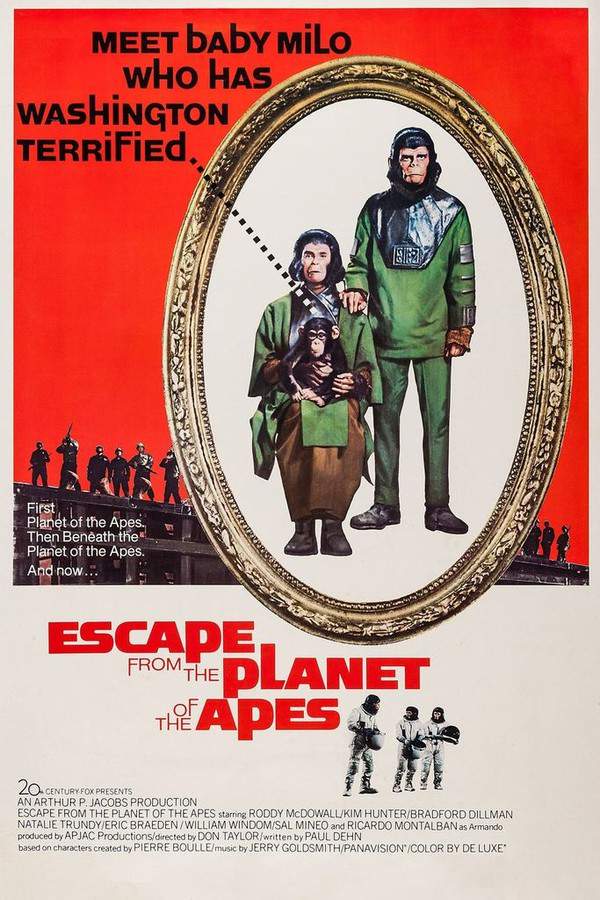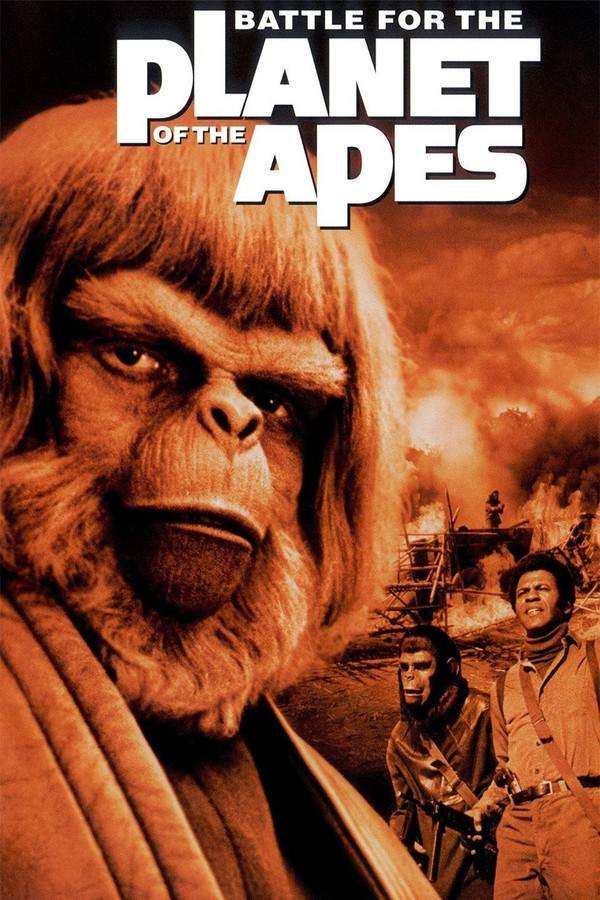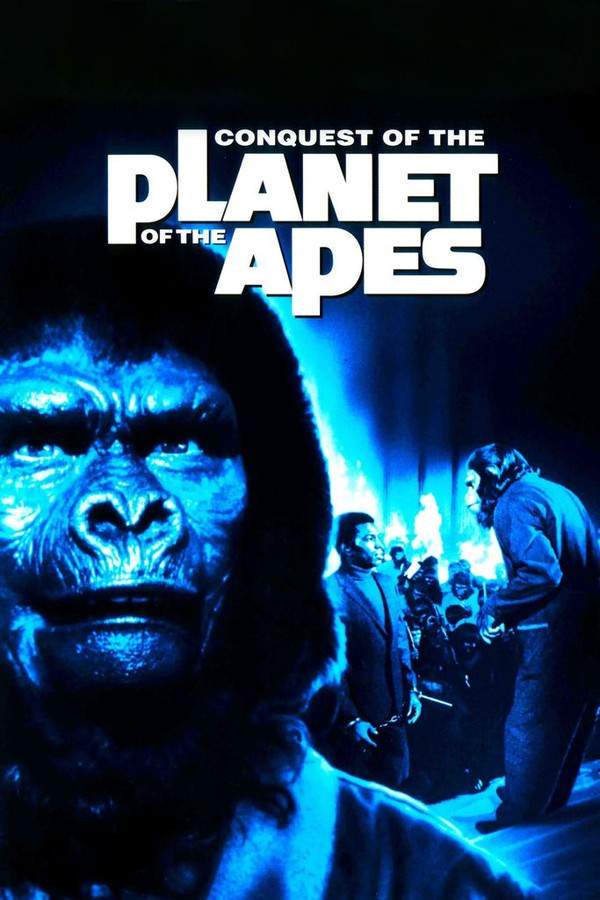
Conquest of the Planet of the Apes 1972
Directed by

J. Lee Thompson
Test your knowledge of Conquest of the Planet of the Apes with our quiz!
Conquest of the Planet of the Apes Plot Summary
Read the complete plot summary and ending explained for Conquest of the Planet of the Apes (1972). From turning points to emotional moments, uncover what really happened and why it matters.
In a dystopian world shaped by the devastating canine-feline pandemic of 1983, a harsh regime emerges that exploits primates as mere possessions for companionship and labor. The influential legacy of two visionary chimpanzee scientists, Cornelius and Zira, continues to cast a long shadow. Their grave warnings delivered in 1973 foresaw dire consequences, though their untimely fate left these prophecies unheeded. The essence of their work now survives in Caesar, the once-hidden offspring of Armando, who matures into a powerful symbol of rebellion against the grim apparatus of oppression that chains him and his kin.
As Caesar traverses this perilous existence, he is confronted with the harrowing truth of his environment, epitomized by the moment he witnesses a gorilla suffering a hideous beating and forced intoxication. His surge of indignation is met with a chilling silence from Armando, who cautions him against revealing his emotions, knowing well the repercussions that await. Yet, when the gorilla’s anguished cries are silenced by a blanket of indifference, Caesar erupts, branding his oppressors as “lousy human bastards.” This remarkable act of courage forces Armando to assume responsibility for his disciple’s passionate outburst, advising Caesar to keep a low profile among his fellow primates.
Soon, Caesar finds himself ensnared in a brutal environment, systematically designed to crush spirits and transform living beings into submissive instruments of labor. Sold at auction to Governor Breck, he becomes a pawn of the very regime that seeks to subdue him, closely monitored by MacDonald, a nuanced character who shares an understanding of the apes’ plight due to his African American background. Meanwhile, the fate of Armando hangs in the balance as he faces a grim reality under the torment executed by Inspector Kolp’s interrogation device.
As Caesar grapples with the news of his mentor’s demise, his faith in the goodness of humanity begins to unravel. Resolute in his desire to reclaim the lives and rights of his fellow primates, he quietly instructs them in combat techniques and weaponry, all in preparation for a rebellion against their oppressors. Unknown to Breck, MacDonald shares a clandestine ambition of rebellion but remains plagued by skepticism regarding their collective uprising.
When Caesar falls into the trap laid by Breck’s henchmen and endures electrical torment, he is coerced into betraying his own kind. Yet, in a bold twist, MacDonald intervenes, orchestrating a ruse that allows Caesar to feign death and ultimately escape, setting himself on a vengeful path against his captors. Emboldened by his defiance, he embarks on a revolutionary journey with the intent to dismantle the oppressive regime wielding power over him and his brethren.
As Caesar’s vision of a new order sparks fervor, he takes control of Ape Management, igniting a whirlwind of upheaval that engulfs the city. Leading his fellow apes, he advances with determination, leaving a trail of defeated riot police in their wake. Breck, once emblematic of tyranny, faces execution, but MacDonald implores for clemency, though Caesar’s resolve for retribution remains unyielding.
As the apes prepare to exact vengeance on their chief tormentor, Lisa, Caesar’s partner and steadfast ally, makes a desperate appeal, shouting, “No!” This pivotal moment resonates, marking Lisa as the first ape besides Caesar to vocalize her thoughts, prompting a ripple of introspection among the others regarding their leader’s thirst for blood.
Ultimately, it is Caesar who chooses mercy over savagery, revealing his capacity for compassion in the wake of their overwhelming triumph. Believing that having achieved a significant victory, they can show leniency, he has witnessed the emergence of a new epoch—one where apes ascend to claim their rightful sovereignty over the Earth. This defining conviction solidifies Caesar’s leadership, leaving his followers to grapple with the deeper implications of their hard-earned triumph.
Conquest of the Planet of the Apes Timeline
Follow the complete movie timeline of Conquest of the Planet of the Apes (1972) with every major event in chronological order. Great for understanding complex plots and story progression.
Pandemic's Aftermath
In 1983, a devastating canine-feline pandemic lays waste to society, resulting in a dystopian world where primates are exploited by a harsh regime. The pandemic reshapes social structures, leading to a significant decline in human dominion over Earth.
Voices of Warning Silenced
The prophetic messages from chimpanzee scientists Cornelius and Zira in 1973 indicate potential dangers, foreshadowing the establishment of the current oppressive regime. Despite their warnings, their fates remain ignored, allowing the regime to flourish unchecked.
Caesar's Birth
Caesar, the offspring of Armando, is born and raised in secrecy, away from the oppressive gaze of the regime. He is imbued with the potential to become a symbol of hope and rebellion for his brethren.
Witnessing Brutality
As Caesar grows, he becomes acutely aware of the suffering around him. One pivotal moment occurs when he witnesses a gorilla being beaten and intoxicated, which marks the beginning of his journey toward rebellion.
Outburst of Anguish
Enraged by the oppressive environment, Caesar declares his contempt for his oppressors, calling them 'lousy human bastards.' This marks a critical moment of awakening for him and forces Armando to reconsider how they approach their resistance.
Auctioned to Oppression
Caesar is sold at auction to Governor Breck and finds himself trapped within the regime he seeks to oppose. This marks a turning point, as he is now closely monitored and used as a pawn in a brutal system designed to break his spirit.
Mentor's Fate
Caesar learns about Armando's grim fate as he faces the cruelty of Inspector Kolp's interrogation methods. This news fuels his determination to fight back against the oppressive regime that has claimed the lives of those he cares for.
Instilling Rebellion
In quiet defiance, Caesar begins teaching his fellow primates combat techniques and weaponry. This act of rebellion is essential for their collective fight to reclaim their rights and dignity against their human oppressors.
Betrayal and Rescue
Caesar is captured and faced with torture, coerced into betraying his kind. However, an unexpected intervention from MacDonald allows Caesar to escape, marking a crucial moment in his revolutionary journey.
Symbol of Revolution
Caesar's escape ignites a revolutionary fervor among the primates, and he takes control of Ape Management. This escalates into chaos as they rise up against the regime, leaving a path of destruction in their wake.
Confronting Tyranny
As the apes prepare to execute Governor Breck, a critical moment arises when Lisa, Caesar's partner, voices her dissent against vengeance. This prompts a profound reevaluation of their violent path and the ethics of their rebellion.
Choice of Mercy
In a defining moment of leadership, Caesar chooses mercy over bloodshed, demonstrating his capacity for compassion. This decision reflects a significant transformation in their movement as they gauge the morality of their triumph.
Establishing Sovereignty
With the execution of Breck, Caesar leads the apes toward reclaiming their rightful sovereignty over the Earth. This victory not only marks the end of oppression but also signifies a new dawn for the primates in their fight for freedom.
A New Era
The uprising leads to the emergence of a new social order, placing the apes in control. Caesar's vision of a society without tyranny establishes a foundation for the future of both his kind and humanity.
Conquest of the Planet of the Apes Characters
Explore all characters from Conquest of the Planet of the Apes (1972). Get detailed profiles with their roles, arcs, and key relationships explained.
Caesar
Caesar is the protagonist and a symbol of resistance against the oppressive regime. Born to primate activists, he evolves from a sheltered upbringing to a fierce leader who inspires others to fight for their freedom. His journey is fraught with challenges, showcasing his bravery, intelligence, and ultimately his capacity for compassion.
Armando
Armando is a significant figure in Caesar's life, acting as a mentor and protector in a hostile environment. He embodies the conflicting desire to safeguard Caesar while recognizing the harsh truths of their world. His role emphasizes the emotional toll of oppression and the complexity of loyalty in dire circumstances.
MacDonald
MacDonald is a nuanced character who empathizes with the plight of the primates due to his background. His involvement in the rebellion adds depth and complexity, illustrating the intersection of race and oppression. He navigates a precarious position, balancing skepticism and hope for collective uprising.
Lisa
Lisa stands out as a key ally to Caesar and plays a crucial role in the narrative. Her bold decision to vocalize her thoughts marks a turning point, highlighting the apes' journey toward self-awareness and agency. She symbolizes the potential for change and the importance of expressing hope and unity.
Governor Breck
Governor Breck exemplifies the tyrannical authority governing the city and represents the soul-crushing system that oppresses the primates. His ruthless actions and ambition depict the extreme lengths to which those in power will go to maintain control. Ultimately, he faces the consequences of his tyranny.
Conquest of the Planet of the Apes Settings
Learn where and when Conquest of the Planet of the Apes (1972) takes place. Explore the film’s settings, era, and how they shape the narrative.
Time period
Post-1983
The film is set in a future shaped by a devastating pandemic that significantly altered society. In this post-1983 era, the consequences of the canine-feline pandemic are palpable, resulting in a brutal regime treating primates as mere possessions. This time is marked by rebellion against tyranny and the struggle for freedom.
Location
Dystopian World, City
The movie unfolds in a stark dystopian world where primates are subjugated and exploited by a harsh regime. This city, marked by oppression and despair, serves as a backdrop for the rebellion led by Caesar. Once vibrant, the urban landscape now symbolizes a grim existence characterized by fear and control.
Conquest of the Planet of the Apes Themes
Discover the main themes in Conquest of the Planet of the Apes (1972). Analyze the deeper meanings, emotional layers, and social commentary behind the film.
✊
Rebellion
Rebellion serves as a central theme as Caesar rises against the oppression of humans. His journey symbolizes the fight against tyranny and the quest for freedom. The collective uprising of the apes underscores the power of resistance and the hope for a better future.
❤️
Compassion
Despite the harsh realities, compassion emerges as a crucial theme when Caesar chooses mercy over revenge. This moment reveals his growth as a leader and signifies the possibility of coexistence. The apes' ability to empathize marks a significant turning point in their revolutionary journey.
🏛️
Tyranny
The theme of tyranny is evident in the oppressive regime that exploits primates for labor. Characters such as Governor Breck embody this oppression, representing a government devoid of compassion. The systemic brutality serves as the catalyst for change, motivating Caesar and others to fight for their rights.

Coming soon on iOS and Android
The Plot Explained Mobile App
From blockbusters to hidden gems — dive into movie stories anytime, anywhere. Save your favorites, discover plots faster, and never miss a twist again.
Sign up to be the first to know when we launch. Your email stays private — always.
Conquest of the Planet of the Apes Spoiler-Free Summary
Discover the spoiler-free summary of Conquest of the Planet of the Apes (1972). Get a concise overview without any spoilers.
In a stark, near‑future version of 1990, humanity has retreated into a rigid hierarchy born from the chaos of a century‑old pandemic. The world feels claustrophobic, its streets and laboratories humming with an uneasy blend of high‑tech control and decaying social order. Primates are no longer wild creatures but property—forced into labor, kept as pets, and regarded as expendable tools in a society that has lost its moral compass. The atmosphere hangs heavy with quiet desperation, as every interaction seems to echo the lingering reverberations of past warnings.
At the heart of this oppressive world stands Caesar, a remarkably intelligent chimpanzee whose lineage traces back to the pioneering apes Cornelius and Zira. Raised under the watchful eye of a compassionate caretaker, he absorbs the legacy of scientific curiosity and a deeper yearning for dignity. Charismatic and thoughtful, Caesar feels the weight of his ancestors’ hopes while confronting the brutal reality of his daily existence. His inner conflict—between obedience and a growing sense of injustice—sets the stage for something far larger than himself.
The tone of the film balances gritty realism with a simmering sense of inevitability. The city’s cold infrastructure and the stark contrast between human authority and the apes’ restrained vitality create a fertile ground for tension. As whispers of discontent ripple through the primate ranks, the audience senses an undercurrent of rebellion ready to surface, driven by questions of freedom, equality, and the right to self‑determination.
Against this backdrop, the story promises a pivotal clash between entrenched power and an emerging consciousness. The stakes feel monumental: a fragile balance poised on the edge of transformation, hinting that the outcome will echo far beyond the streets of this dystopian 1990, reshaping the very future of both species.
Can’t find your movie? Request a summary here.
Movies with Similar Twists and Themes
Uncover films that echo the narrative beats, emotional arcs, or dramatic twists of the one you're exploring. These recommendations are handpicked based on story depth, thematic resonance, and spoiler-worthy moments — perfect for fans who crave more of the same intrigue.
Featured on this page

What's After the Movie?
Not sure whether to stay after the credits? Find out!
Explore Our Movie Platform
New Movie Releases (2025)
Famous Movie Actors
Top Film Production Studios
Movie Plot Summaries & Endings
Major Movie Awards & Winners
Best Concert Films & Music Documentaries
Movie Collections and Curated Lists
© 2025 What's After the Movie. All rights reserved.



